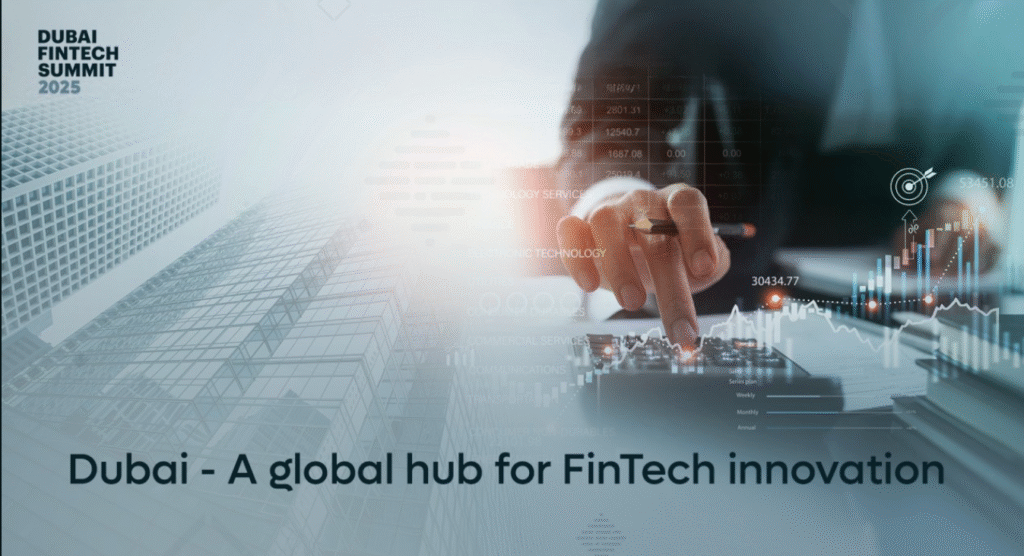
The United Arab Emirates (UAE) has emerged as one of the world’s most dynamic financial hubs, attracting global investors, entrepreneurs, and banking leaders. Over the past two decades, the country has built a strong reputation for innovation, stability, and forward-thinking policies. Today, it is not just a regional leader in banking and finance, but also a global player shaping the future of fintech.
From Dubai International Financial Centre (DIFC) to Abu Dhabi Global Market (ADGM), the UAE has created ecosystems that bring together traditional banking institutions, cutting-edge fintech startups, and regulatory bodies. The goal is simple: to position the country as a trusted financial hub while driving digital transformation across the industry.
The UAE banking sector has long been one of the most robust in the Middle East. With strong capitalization, world-class regulations, and advanced infrastructure, banks in the UAE continue to play a critical role in financing trade, investments, and development projects. Dubai and Abu Dhabi have become the preferred destinations for international banks looking to expand in the region.
The presence of major international banks, along with strong local players such as Emirates NBD, First Abu Dhabi Bank (FAB), and Dubai Islamic Bank, provides a balance of global reach and regional expertise. These banks are not only supporting traditional corporate and retail banking but also investing heavily in digital solutions to meet the demands of tech-savvy customers.

One of the most exciting developments in the UAE’s financial story is the rapid growth of fintech. The government has actively encouraged the sector by providing regulatory sandboxes, funding support, and partnerships with global tech leaders. This has helped create an environment where innovation thrives.
Fintech in the UAE covers multiple areas such as:
With this momentum, the UAE is not only adopting fintech but exporting its financial technologies to other global markets.
What sets the UAE apart is its forward-looking regulatory environment. Both DIFC and ADGM have introduced frameworks that encourage innovation while ensuring consumer protection. The presence of regulatory sandboxes allows fintech startups to test new products without being burdened by full regulations at the early stages.
The government’s broader vision also plays a crucial role. Initiatives like UAE Vision 2031 and Dubai Economic Agenda D33 emphasize digital transformation, global competitiveness, and diversification away from oil revenues. The financial sector, particularly banking and fintech, sits at the heart of this strategy.
International investors view the UAE as a safe and attractive financial destination. Its strategic location between East and West makes it a natural hub for trade and capital flows. With strong financial infrastructure, tax incentives, and investor-friendly policies, the UAE has become a magnet for venture capital firms and fintech entrepreneurs from around the world.
For example, global companies like Ripple and Binance have set up operations in Dubai and Abu Dhabi, leveraging the supportive regulatory environment. Similarly, the DIFC Fintech Hive has become the largest financial innovation hub in the Middle East, connecting startups with banks, regulators, and investors.
The rise of digital-only banks is another strong trend shaping the UAE’s financial sector. Neo-banks such as Zand and Wio are offering fully digital services, from opening accounts to managing investments, without the need for physical branches. These platforms are designed to appeal to millennials and Gen Z customers who expect fast, mobile-first financial services.
At the same time, traditional banks are upgrading their digital offerings. Emirates NBD, for instance, has invested heavily in artificial intelligence (AI), biometrics, and blockchain to enhance customer experiences. Such moves ensure that the UAE remains ahead in the global race for digital banking.

AI and blockchain are two technologies transforming the UAE’s financial ecosystem. Banks and fintech firms are using AI for fraud detection, risk assessment, and personalized customer services. Meanwhile, blockchain technology is revolutionizing cross-border payments, digital identity verification, and trade finance.
Dubai has even launched the Dubai Blockchain Strategy, which aims to position the city as a leader in blockchain-powered government and financial services. This integration of emerging technologies into banking makes the UAE one of the most advanced markets globally.
While the growth of fintech is promising, challenges remain. Cybersecurity risks, evolving regulations, and competition from other global hubs like Singapore and London are factors that UAE must continue to address. However, the country’s ability to adapt quickly and attract top talent gives it a strong advantage.
The opportunities are vast. With a young population, rising digital adoption, and strong government support, the UAE is poised to shape the future of financial services in the Middle East and beyond. Its leadership in digital payments, blockchain, and AI-driven banking will only strengthen its position on the world stage.
The UAE’s journey from a regional financial center to a global hub is a story of vision, innovation, and resilience. By combining strong traditional banking foundations with cutting-edge fintech solutions, the country is redefining the financial landscape.
With supportive policies, advanced technologies, and a growing ecosystem of innovators, the UAE is set to remain a leader in global finance. As the world shifts toward digital-first solutions, the UAE stands as a model of how nations can successfully embrace innovation while maintaining financial stability.
The next decade promises even more transformation, with the UAE at the heart of global banking and fintech revolutions.
READ MORE:- Inside the World of Business Acquisitions: Secrets of Corporate Growth 2025
